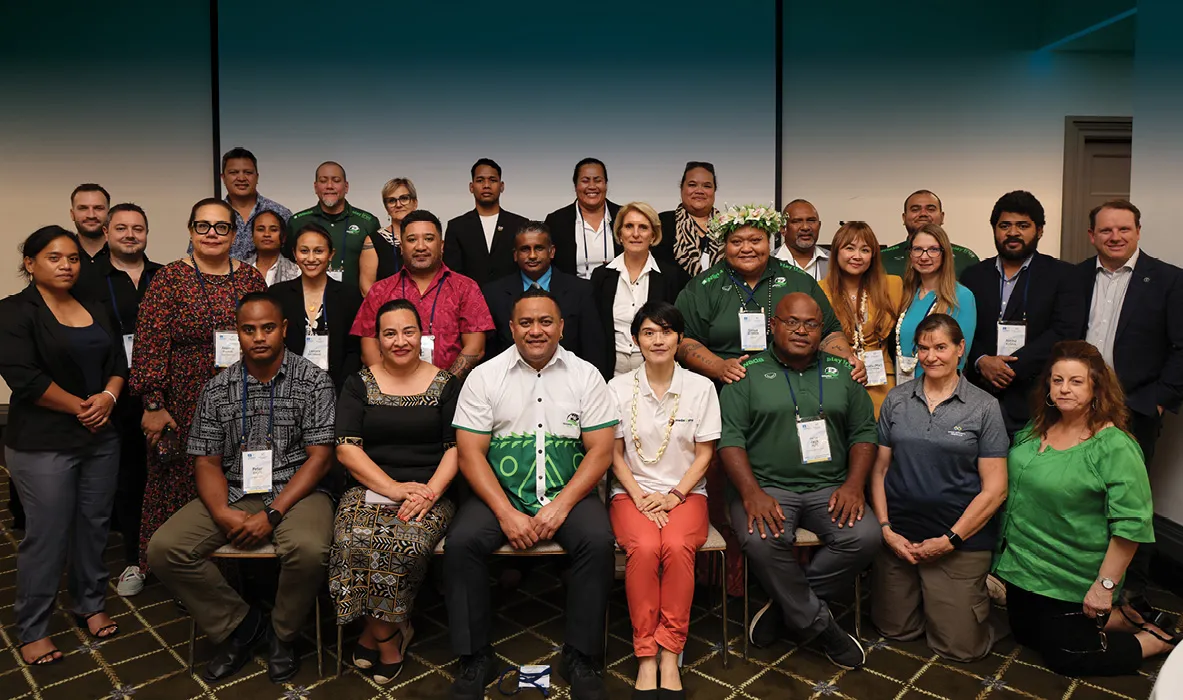
It was a milestone week for Pacific delegates from 17 countries who gathered for a dynamic five-day forum last week focused on anti-doping and sport integrity, and bringing together Government officials, National Anti-Doping Organisations (NADOs), and National Olympic Committees (NOCs) from across the Pacific, alongside the Asia Oceania office of the World Anti-Doping Agency (WADA) in Brisbane.
The first three days of the week featured the inaugural deployment of UNESCO’s Regional Capacity-Building Programme, co-hosted by UNESCO and Sport Integrity Australia (SIA).
The programme delivered information and advice to enhance compliance with the UNESCO International Convention against Doping in Sport and strengthen national anti-doping frameworks, with a particular focus on supporting Small Island Developing States.
Too often, these groups operate in silos – a situation driven by a range of challenges including geographic isolation, limited funding, logistical hurdles, unreliable internet connectivity, language barriers, and the need for staff and volunteers to juggle multiple roles.
Despite these obstacles, when Pacific nations collaborate, anti-doping programs can be delivered more effectively. NADOs rely on government support to meet both private law obligations under WADA and public law commitments under the UNESCO Convention.
The final two Pacific Collaboration days, led by Sport Integrity Australia, highlighted the need for stronger cooperation between NADOs, NOCs, and government officials across Oceania.
The week-long programme created space for open dialogue on anti-doping, testing, and safeguarding in sport. Delegates discussed their challenges, successes, and future needs.
Overall, there was unanimous agreement that the region establish a dedicated ‘Oceania Group’ to unify efforts, amplify regional voices, and drive coordinated action on clean sport.
This collective will serve as a platform for NADOs, NOCs, and governments to work together, breaking down silos and ensuring that anti-doping programs are delivered efficiently, and with the right support and resources to meet both international and domestic obligations.
The new collective voice, which Sport Integrity Australia has offered to lead, will help shape more inclusive and responsive integrity frameworks for the Oceania region.
|
Our latest news, resources, podcasts, courses and webinars:
|
SIA Deputy CEO, Luke McCann, said the impact of bringing together our Pacific leaders from NADOs to Government officials marked the start of a collaborative journey towards strengthening anti-doping efforts, building regional capability, and fostering a united front for clean and fair sport across the Pacific.
“We’ve had fantastic engagement from all 17 countries who attended.
The strong message heard is that the technical complexity of anti-doping and the importance of tailored support is critical to ensuring fair competition, athlete well-being, and the integrity of sport at every level.
“We’re acutely aware that in this space, it’s always a partnership. We place a lot of emphasis on training and education, but it’s about working together with people locally.
“We need to know and understand the needs of the Pacific and how we can actively help,” Mr McCann said.
With the Brisbane 2032 Olympic and Paralympic Games on the horizon, the forum also laid the groundwork for deeper regional involvement.
“We’ve got a seven-year runway to support and build capacity with partners across the Pacific. The key is to take our time, understand what’s needed, and walk that path together,” Mr McCann said.
Brisbane 2032 is a Games for the Pacific region, creating a powerful opportunity to support the development of a sustainable sports system across Oceania.
Further details on the new Oceania Group and how it will play an active role in protecting sport across our region, now and well into the future, will be delivered in the coming weeks.